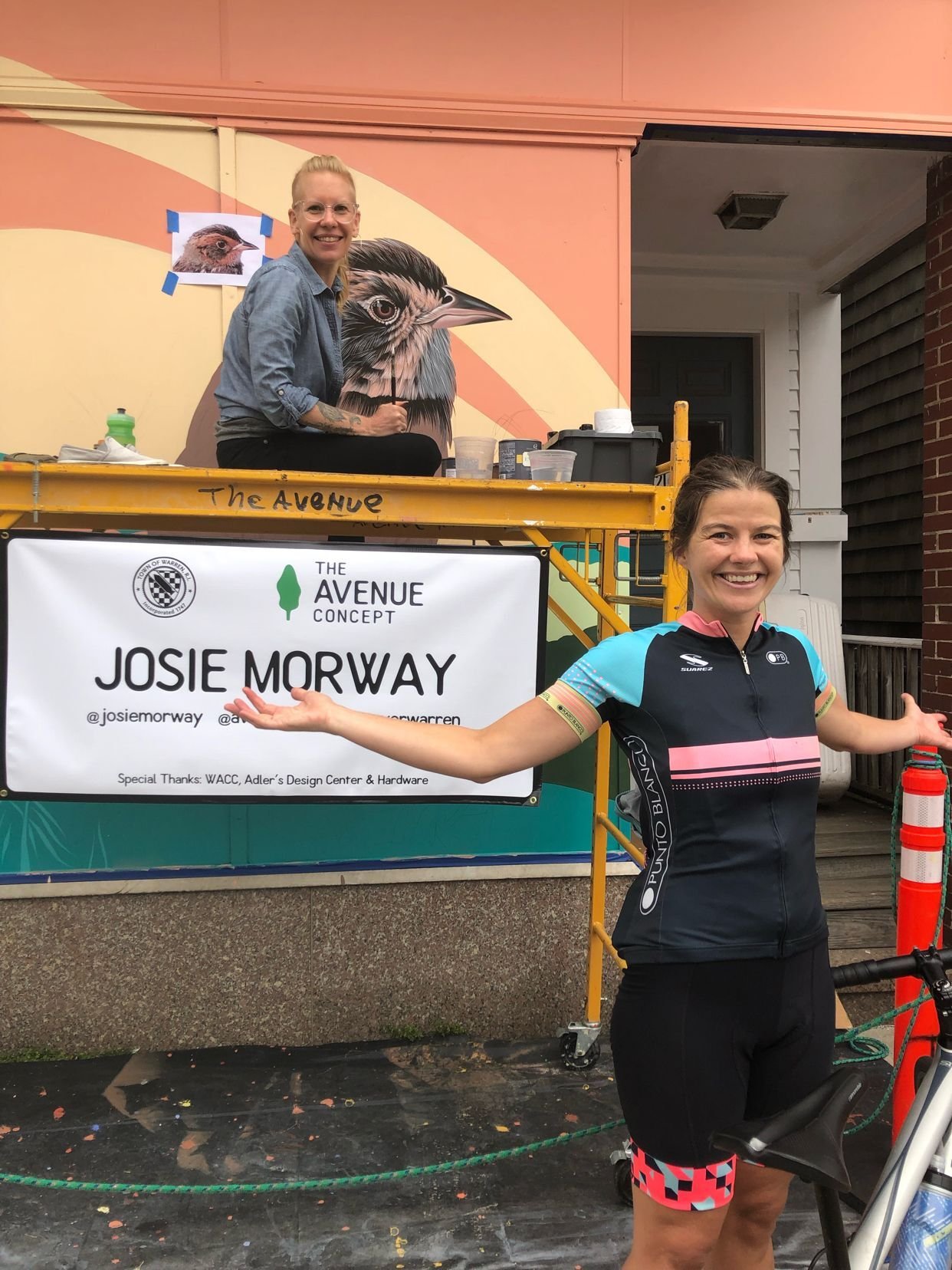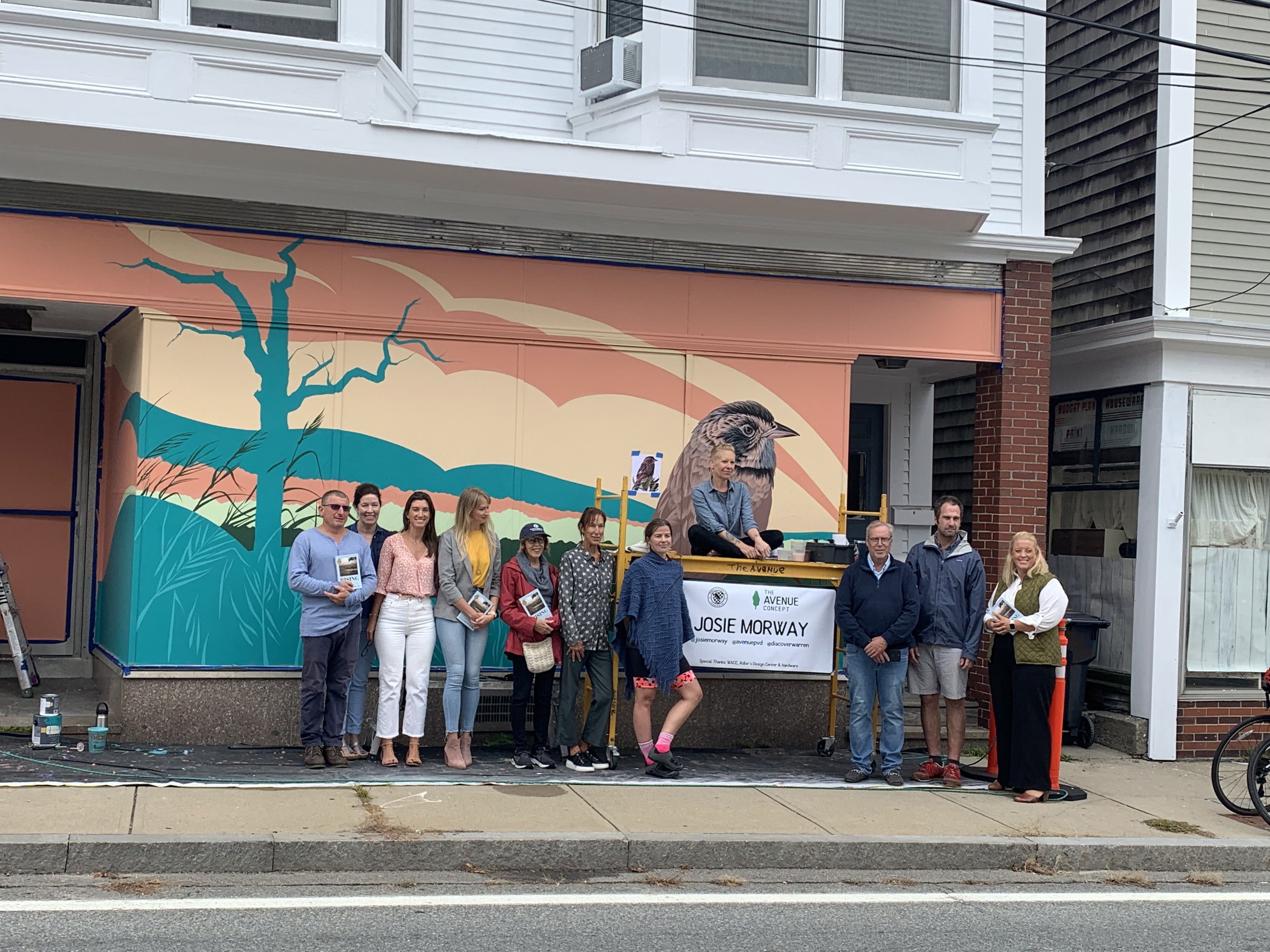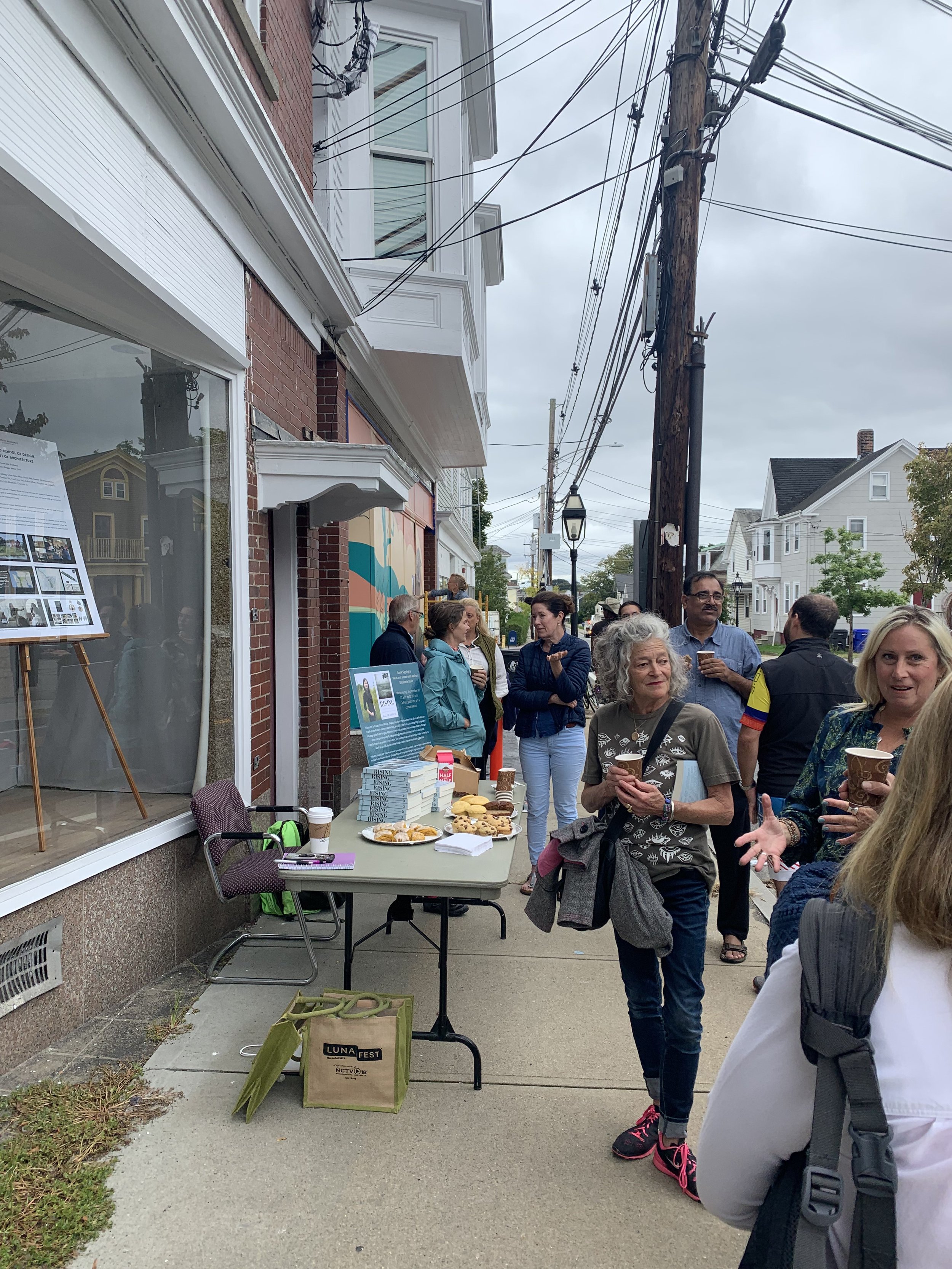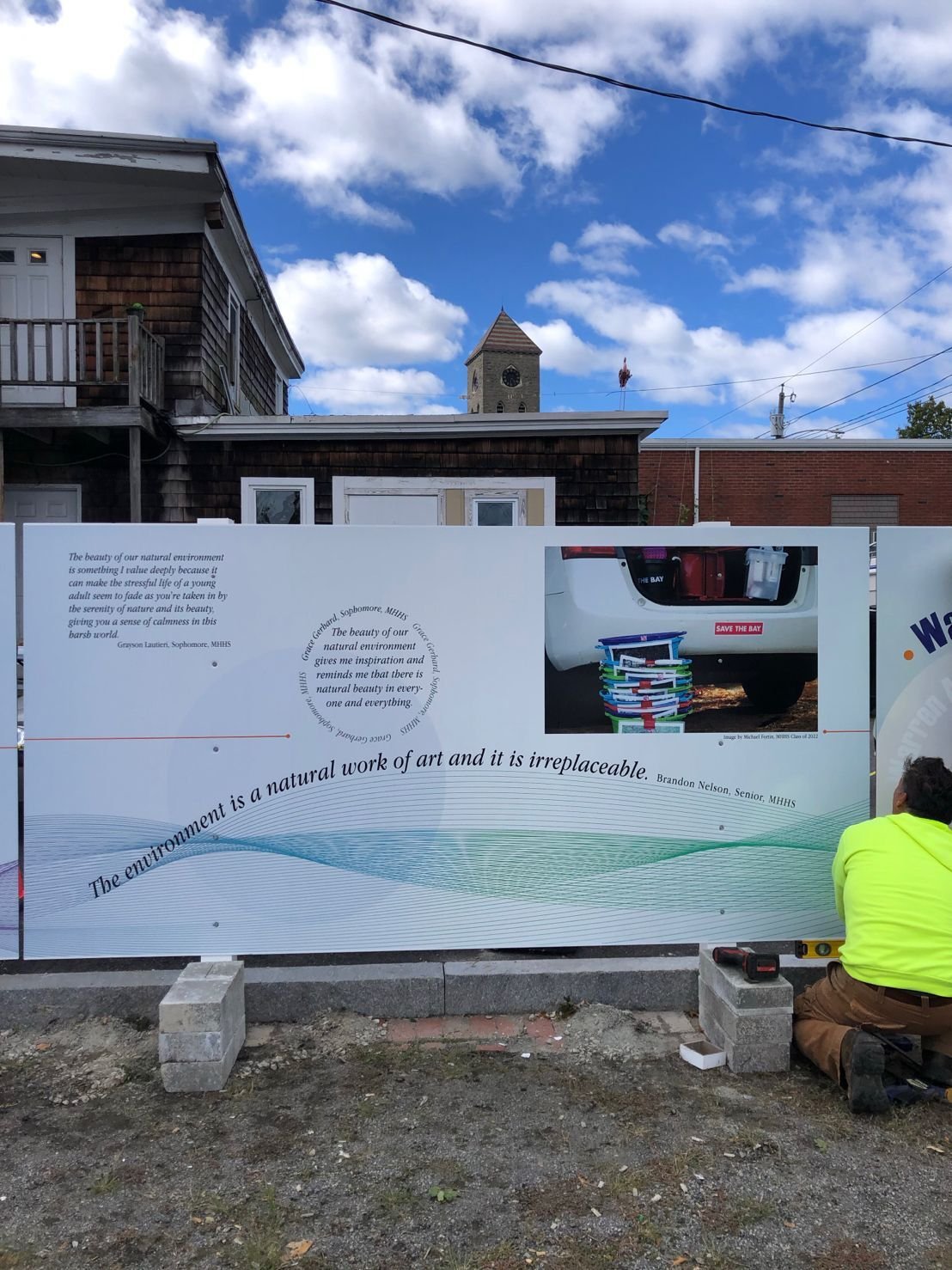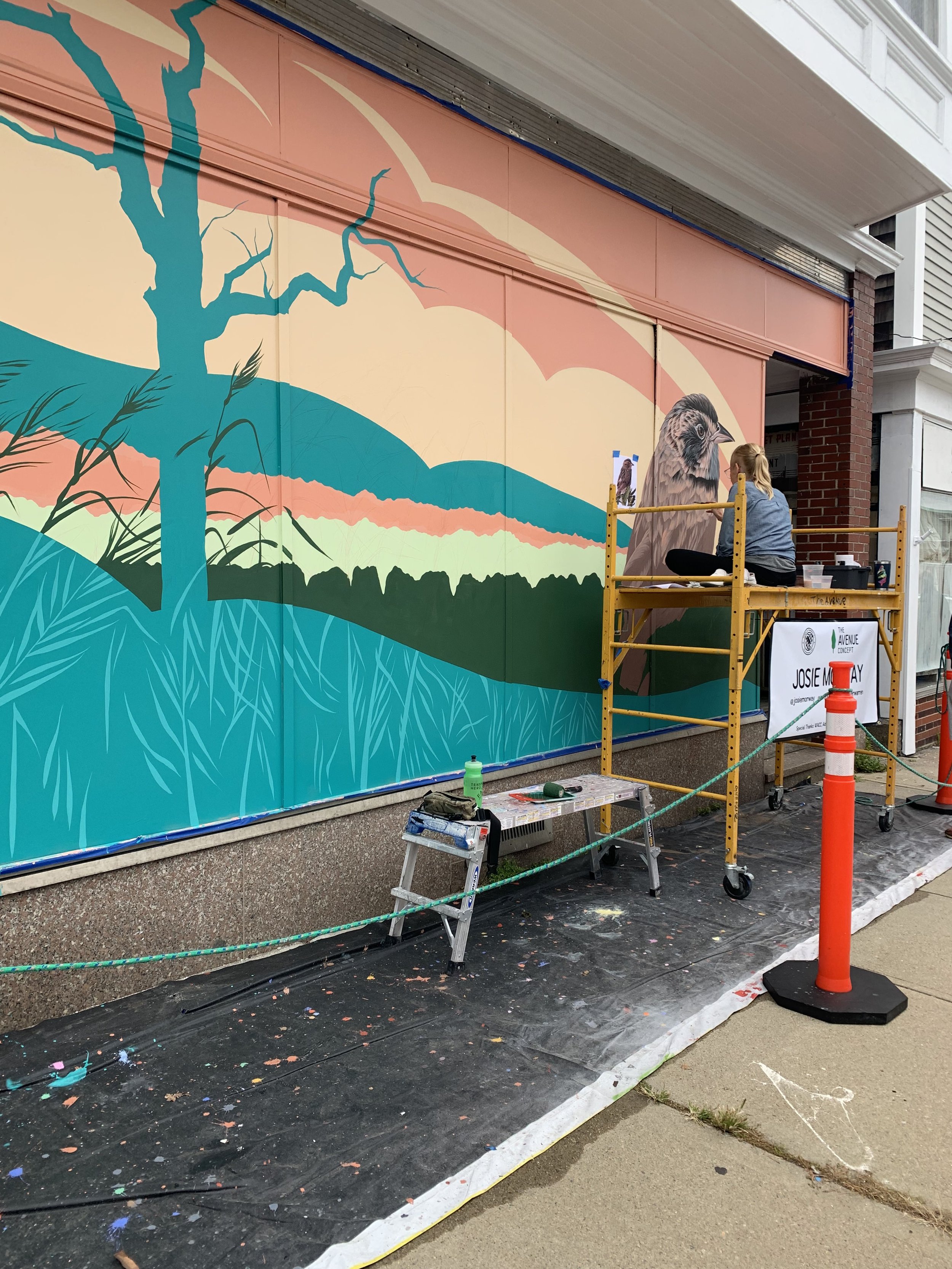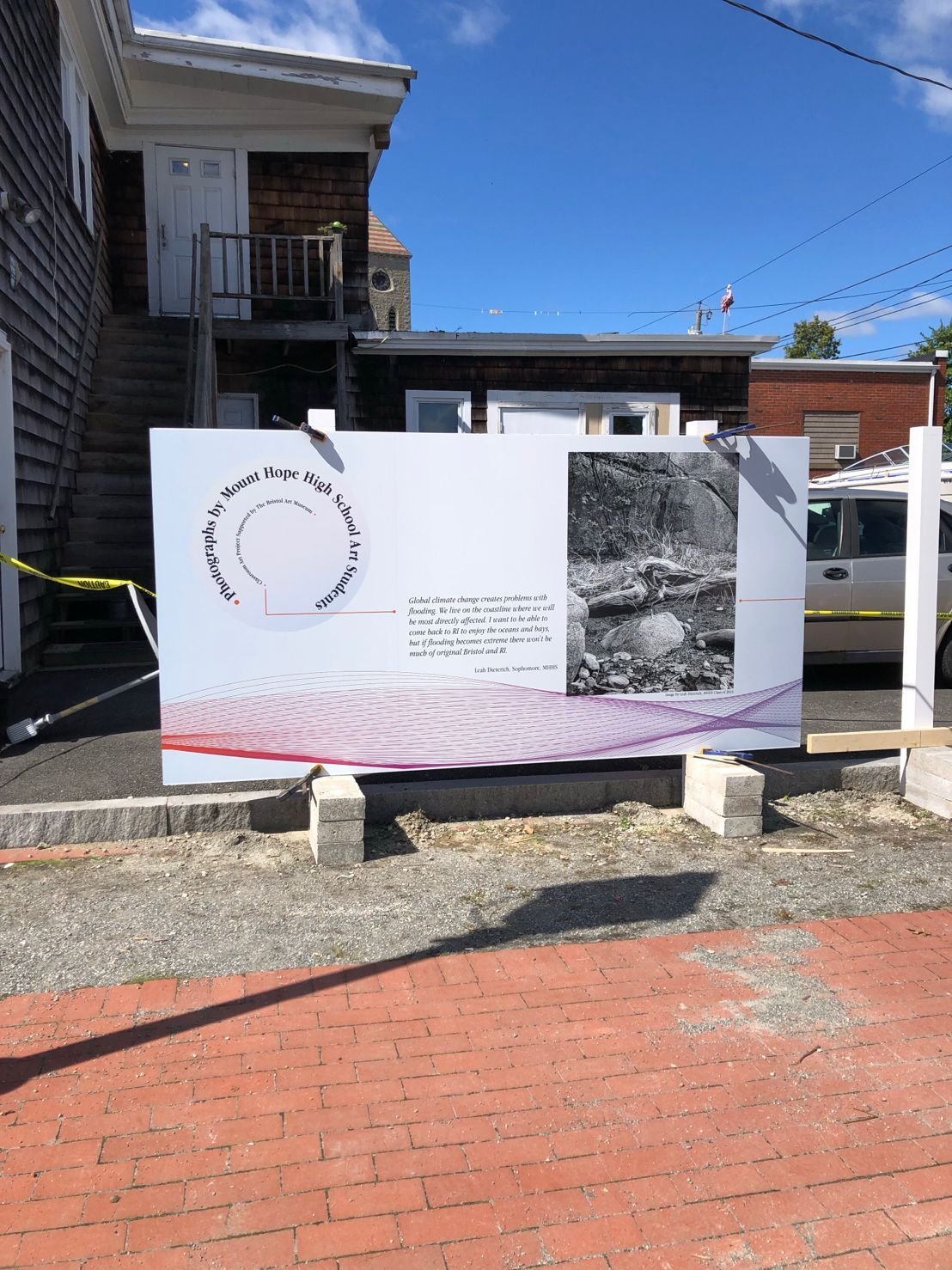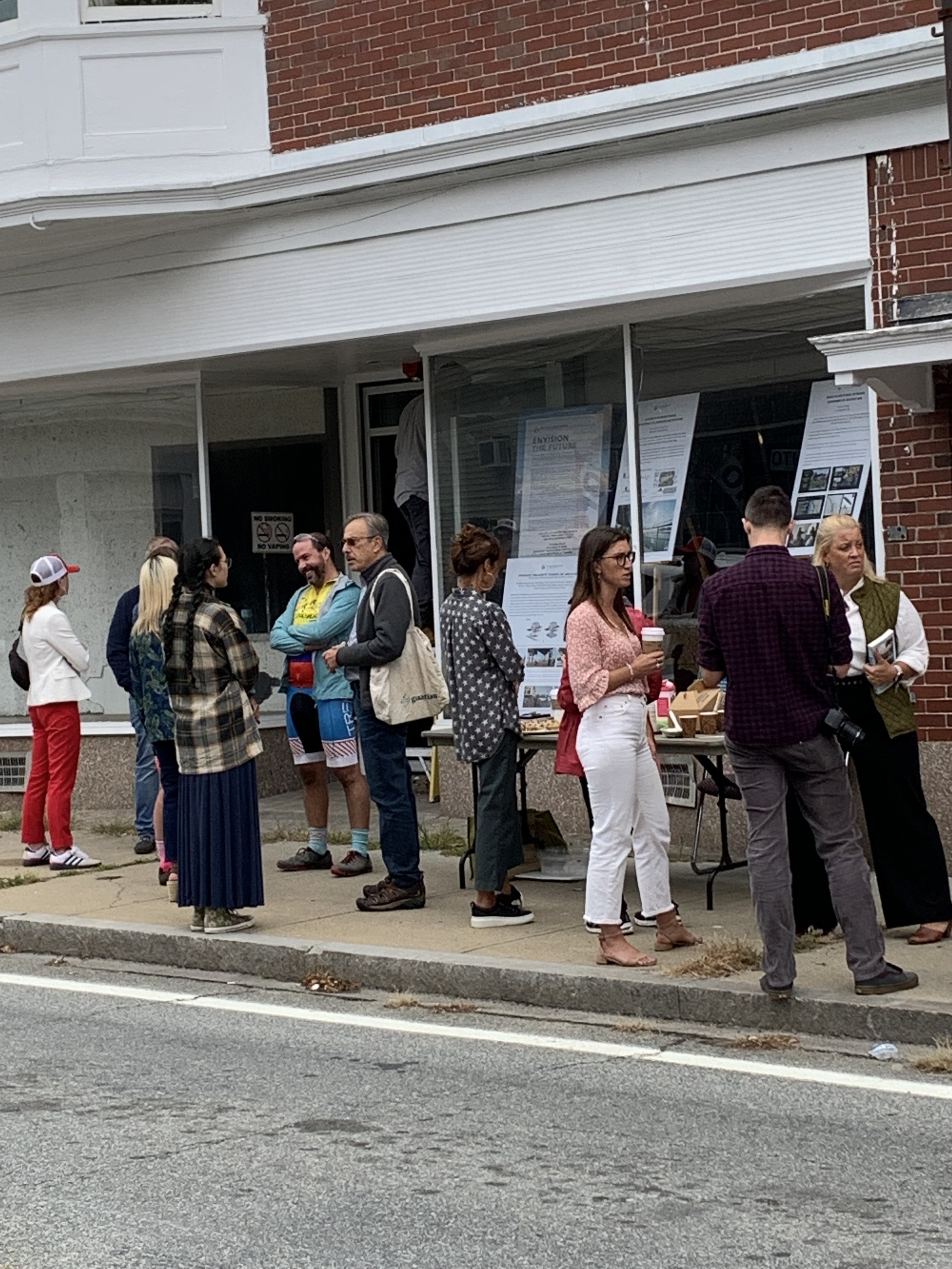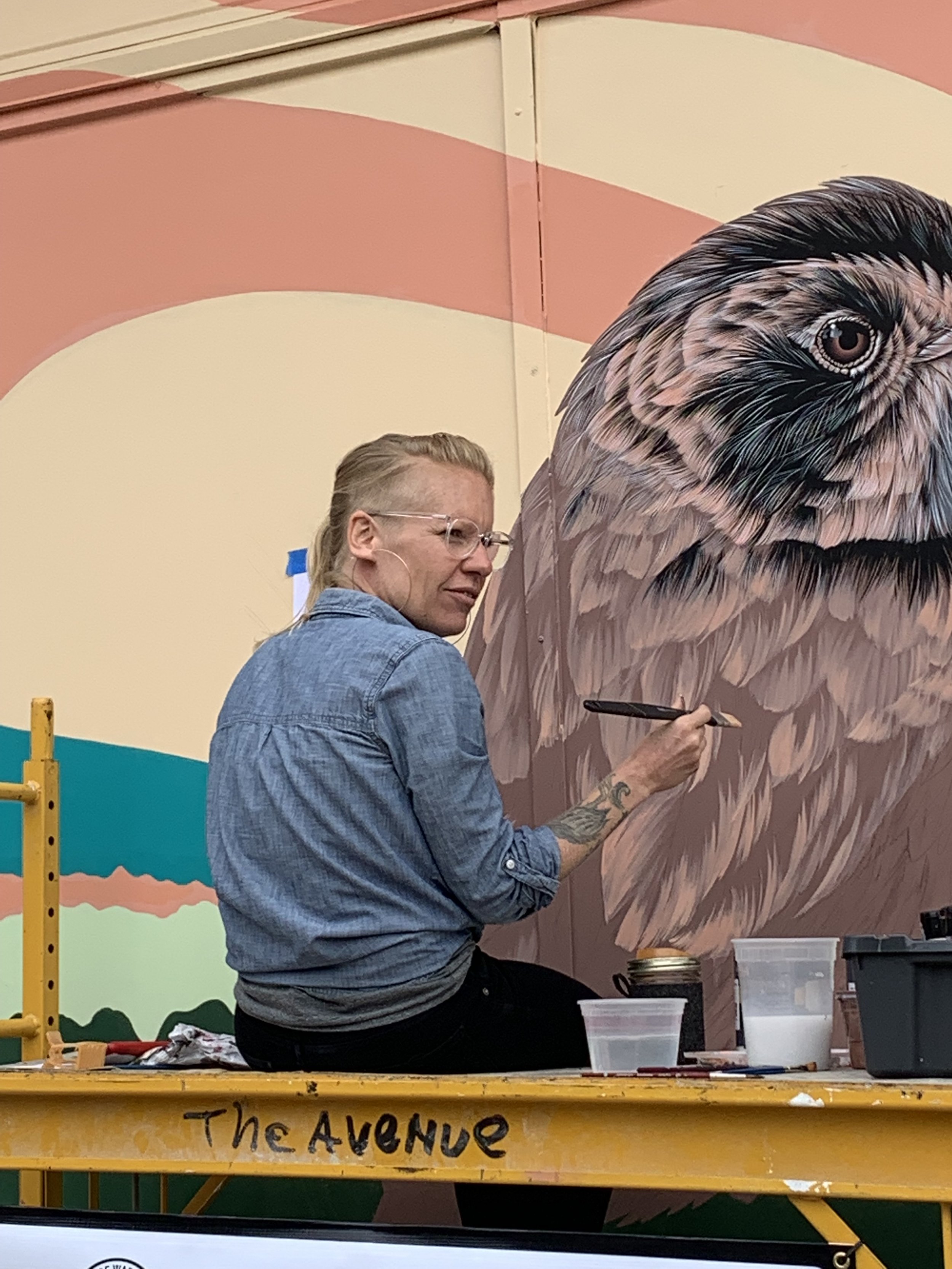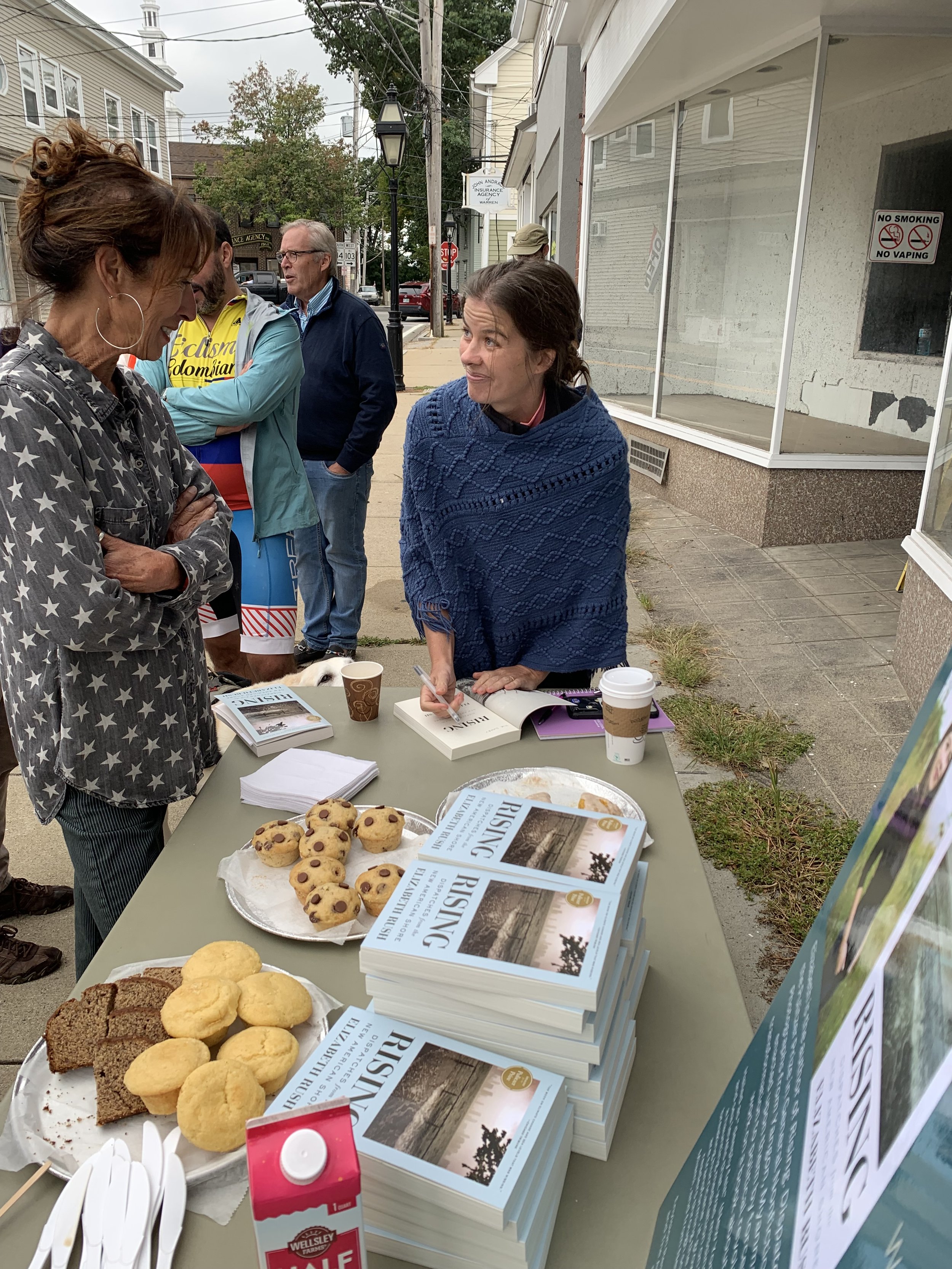Can Art Help Us Consider Who We Want to Become as Climate Change Changes Us?
Photo courtesy Ryan Contay, Boston Globe.By Anna Popnikolova
On a mild day in late September, a new piece of art was installed in Warren, Rhode Island—a mural titled “The Seas are Rising and So Are We”. The piece was created by Boston artist Josie Morway. Located on 24 Child Street in Warren, the mural wraps around the face of the building, depicting a saltmarsh sparrow among a bright landscape of orange, teal and yellow.
The mural illustrates saltmarsh grass, phragmites and marsh-elder to mimic the saltmarsh sparrow’s natural breeding ground, alongside the sparrow is the outline of a black tupelo tree. The tupelo tree and the endangered saltmarsh sparrow were inspired by the writings of novelist Elizabeth Rush. The very first chapter of her book “Rising: Dispatches from the New American Shore” takes readers to the tiny town of Warren, to the tupelo tree that died as a result of rising sea levels and the saltmarsh sparrow whose habitat has been jeopardized by the unpredictable tides.
Morway was hired by The Avenue Concept (TAC), a Providence-based organization focused on education, awareness and the creation of art in public spaces. In 2021, TAC partnered with the Town of Warren to paint several utility boxes on Water Street. One of these boxes from the earlier project can be seen down the street from the Rising-inspired mural, a turquoise box with red and orange smiling fish. Around the corner from the utility box is another one of Warren’s public art projects, a public walkway of art from Mt. Hope High School students and local artist and Envision Resilience advisor Linda Megathlin, lining a brick walkway connecting to Market Street.
“I think it [street art] communicates in a much different way than work in a gallery does,” Morway said . “There's something about being in the sterile gallery environment and looking at a piece of art that's sort of rarified and intimidating, like... Okay, this is ART. It must be... arty. It's deep, and expensive, and I need to formulate an opinion about it in relation to the art world and its price. Street art, on the other hand, feels like part of the world. On a walk, you see an old building, a new building, some power lines, a sign trying to sell you something, a weed growing through a crack in the pavement, a mural. They can feel somewhat equal, and all speak to you in different ways.”
Throughout the afternoon, and the remainder of the week, Morway could be seen on Child Street, kneeling on her yellow painter’s scaffolding, adding brushstrokes to the larger-than-life sparrow and washing brushes. Occasionally, she stepped from the scaffolding to adjust the level and continued her work in painstaking detail.
“I tried to be really efficient in getting the background painted, so I could reserve a lot of time to get into the details on the bird,” she said. “There's nothing I love more than sitting still for hours, just obsessively making the beautiful, fine lines of feathers.”
The mural, now complete at the start of Child Street, is a bright addition to the surrounding brick buildings. Blue and yellow script along the top of the mural writing out the title, The Seas are Rising and So Are We, which is a slogan from the popular book by Cynthia Kaufman.
“I try to come from a place of awe and respect for all life, especially as exemplified in the natural world, and to make work that causes people to pause, to marvel, to get a little uncomfortable, to ask questions,” Morway explained, after finishing the mural. The future for Warren, with more climate plans in the works and hopefully more beautiful murals to come, looks bright.
Shorelines in every coastal town on the East Coast are rising and no town knows this better than Warren. With a rich Native American and colonial history, and one of the last working waterfronts in New England, Warren is home to a community of change and resilience. The Town of Warren has been taking action against climate change and sea level rise and follows a “retreat in advance” model of resilience, their plans anticipate future changes. Warren’s Market to Metacom plan has gained national attention for its novelty: the relocation of the low-lying, at-risk, flood-prone Market Street to the high, underutilized Metacom Street. Bob Rulli, the Director of Planning & Community Development in Warren, described Market to Metacom as, “ one of the most forward-looking plans to address climate change and resiliency.” He and his team have been leading the way in being proactive on climate preparedness and are always seeking ways to foster conversation on these challenging topics in their community.
“Retreat is a difficult conversation,” Rulli said. ”For those residents who will be directly impacted. However, knowing and accepting that there will be impacts leaves you with two options: plan for the inevitable or ignore and suffer the consequences of having not planned or prepared.”
But the first step for any climate conversation, especially a difficult one, is awareness, in its many forms. Warren’s focus on education and awareness has fostered a town filled with climate-related art and exhibitions.
And so, there was no better place to hold a book signing of Rising: Dispatches from the New American Shore by author Elizabeth Rush, than Warren—beneath the backdrop of public art as a climate communication tool. The Pulitzer Prize finalist and visiting Brown University lecturer cycled down from Providence to join ReMain Nantucket and the town of Warren in their Rising-inspired mural painting. Rising follows sea level rise in the most heavily impacted areas; the Gulf Coast, Miami, all the way to NYC and the Bay Area. Rush focuses on underprivileged and often marginalized communities in each affected area, and explores the way that sea level rise and climate change impacts lives and livelihoods.
“The more we can have tough climate change conversations now, the better equipped we will be to make difficult decisions down the road about what we want to preserve and what we are willing to let go as this transition continues,” said Rush. “Art can help us change the valence of a word or a phenomenon. I would like us to be both more aware of the subtle shifts that are happening all around us, and through this awareness to realize that there are things we can do.” As Warren, Nantucket, and the rest of the world face sea level rise in various ways, Rush asks us, “Who do we want to become as the climate changes us?”
Anna Popnikolova is a Nantucket native and junior at Nantucket High School. She is assistant Editor-In-Chief of Veritas, the NHS school newspaper, has been writing her entire life, and takes a great interest in the environment and conservation efforts on Nantucket. As a member of the Nantucket Youth Climate Committee, she hopes to continue her involvement with environmental awareness and resilience.



